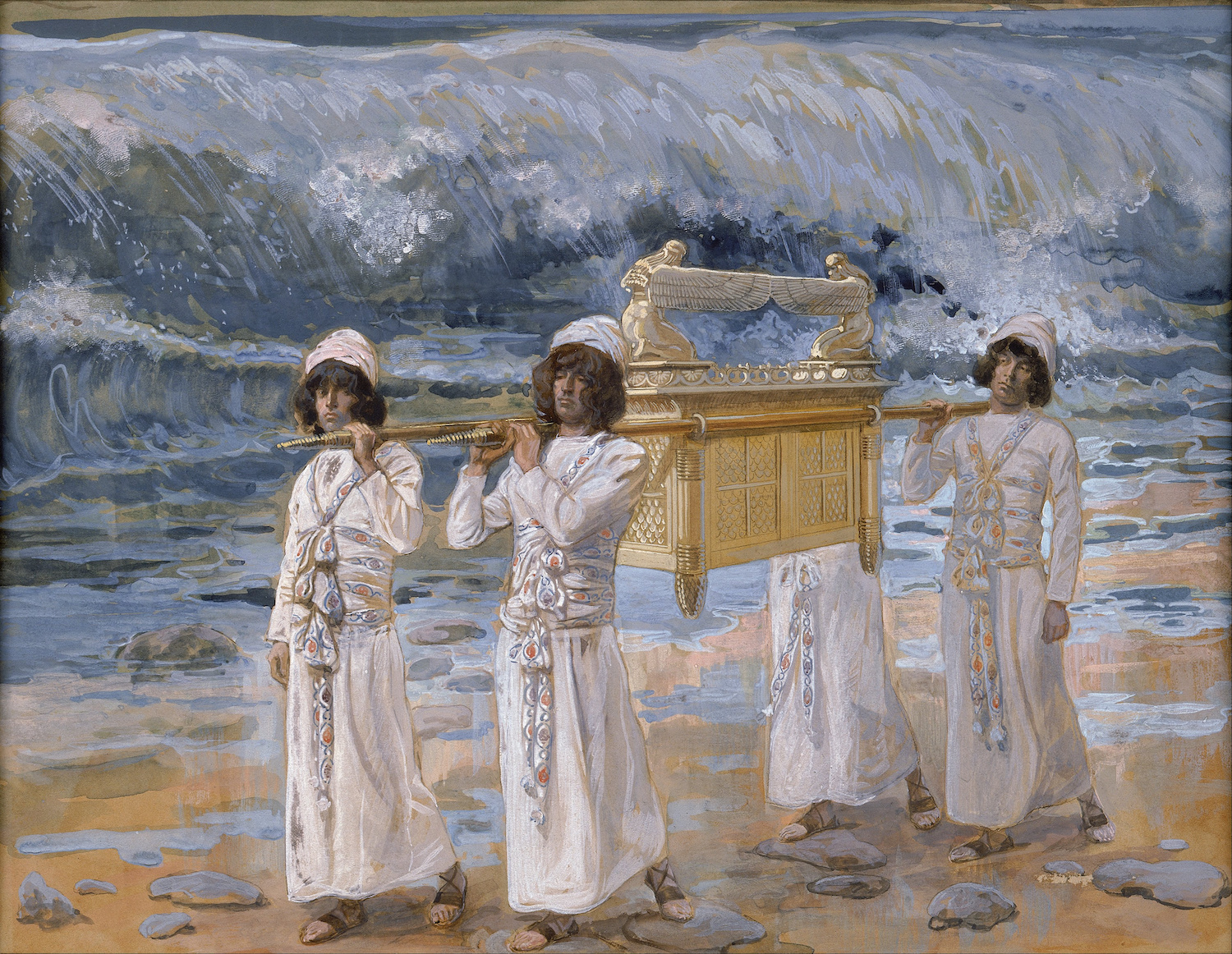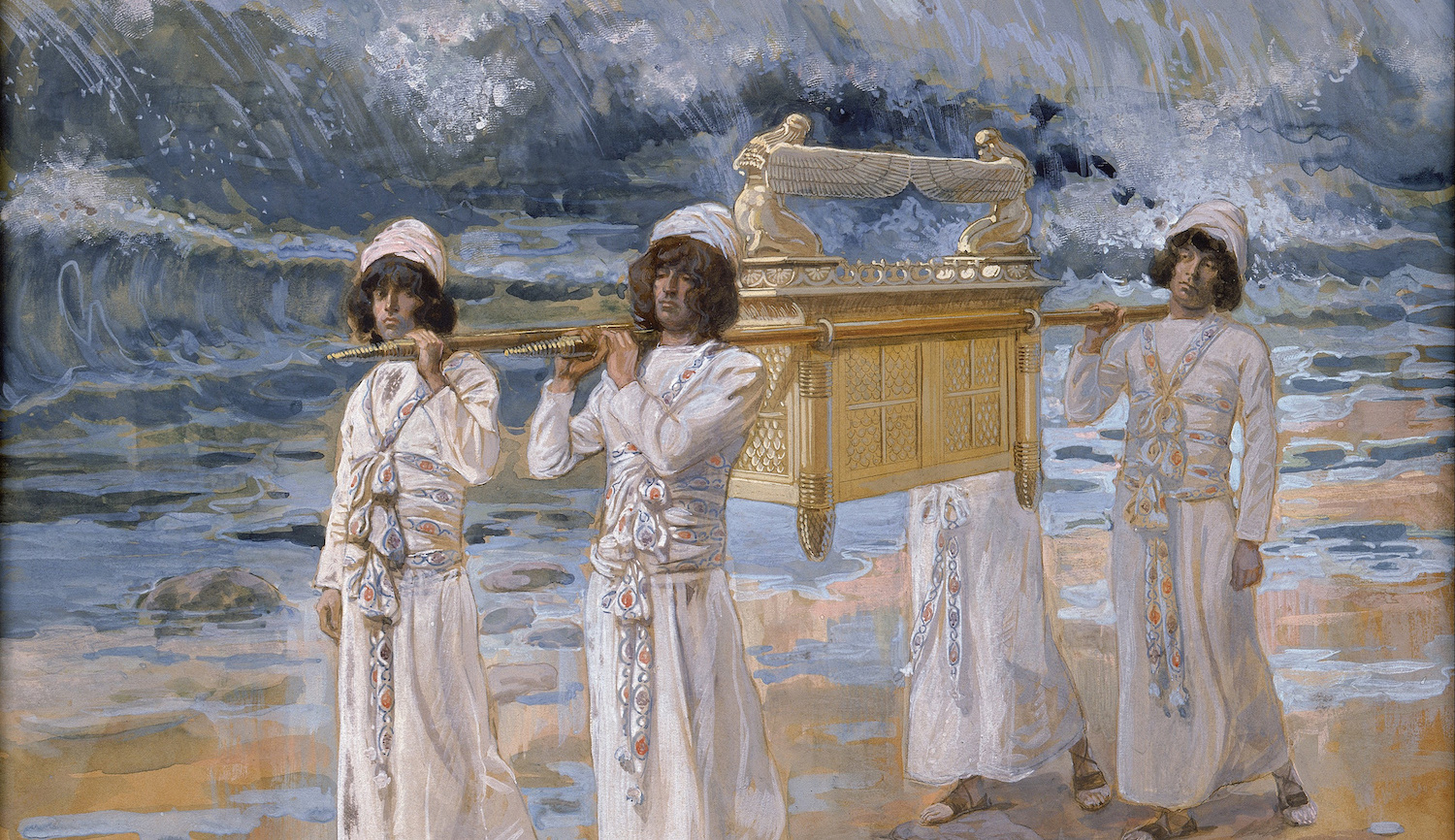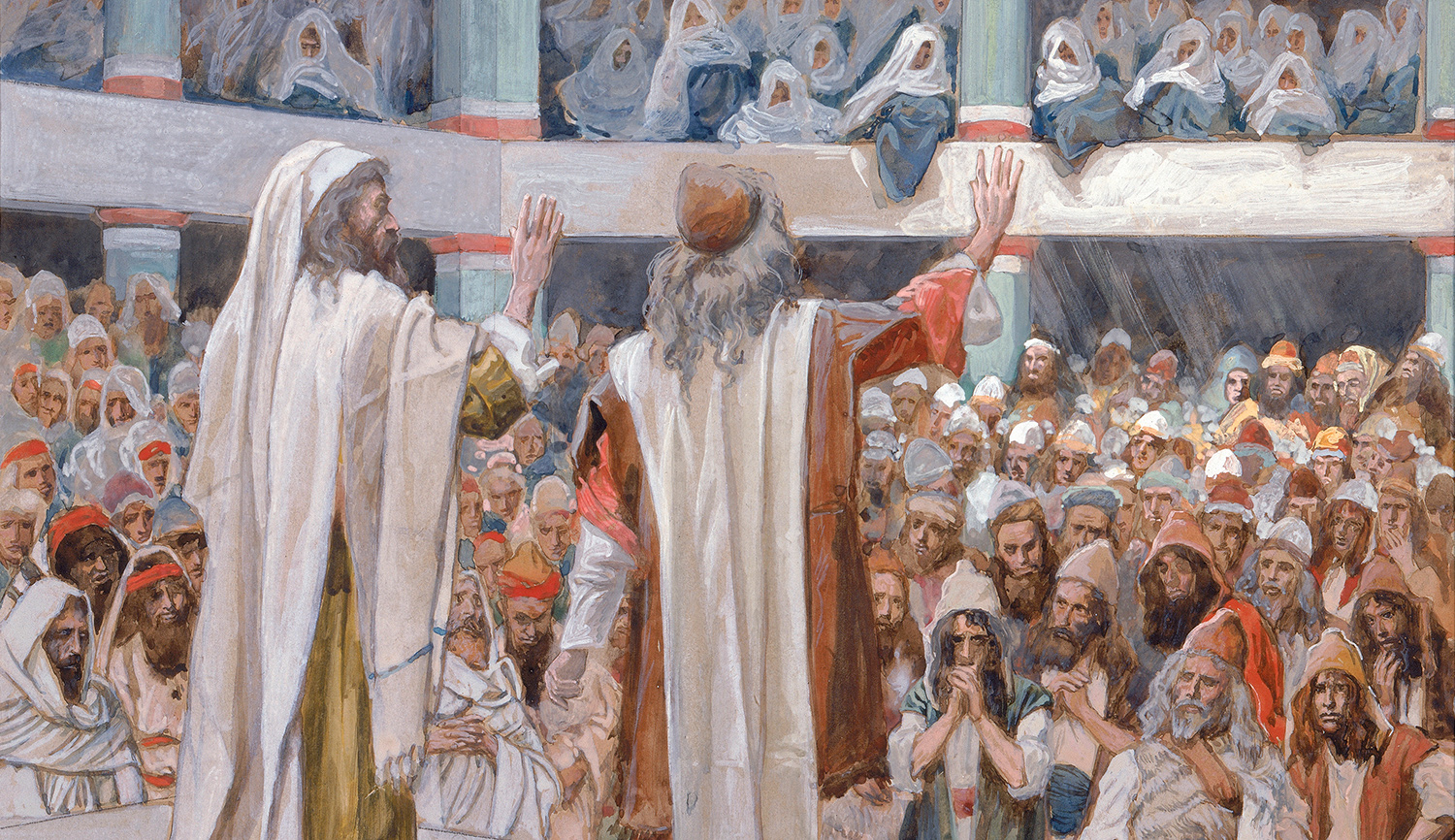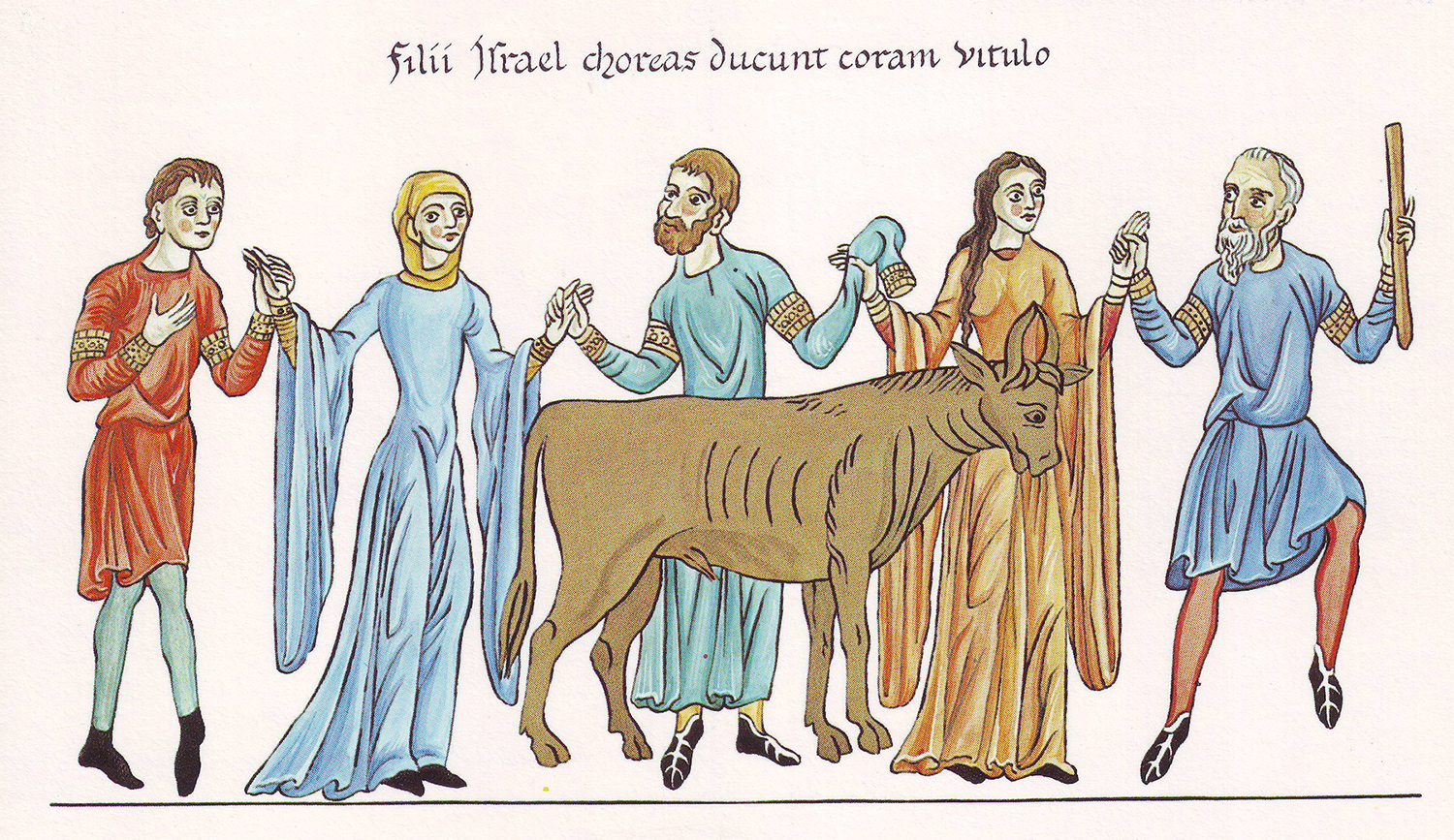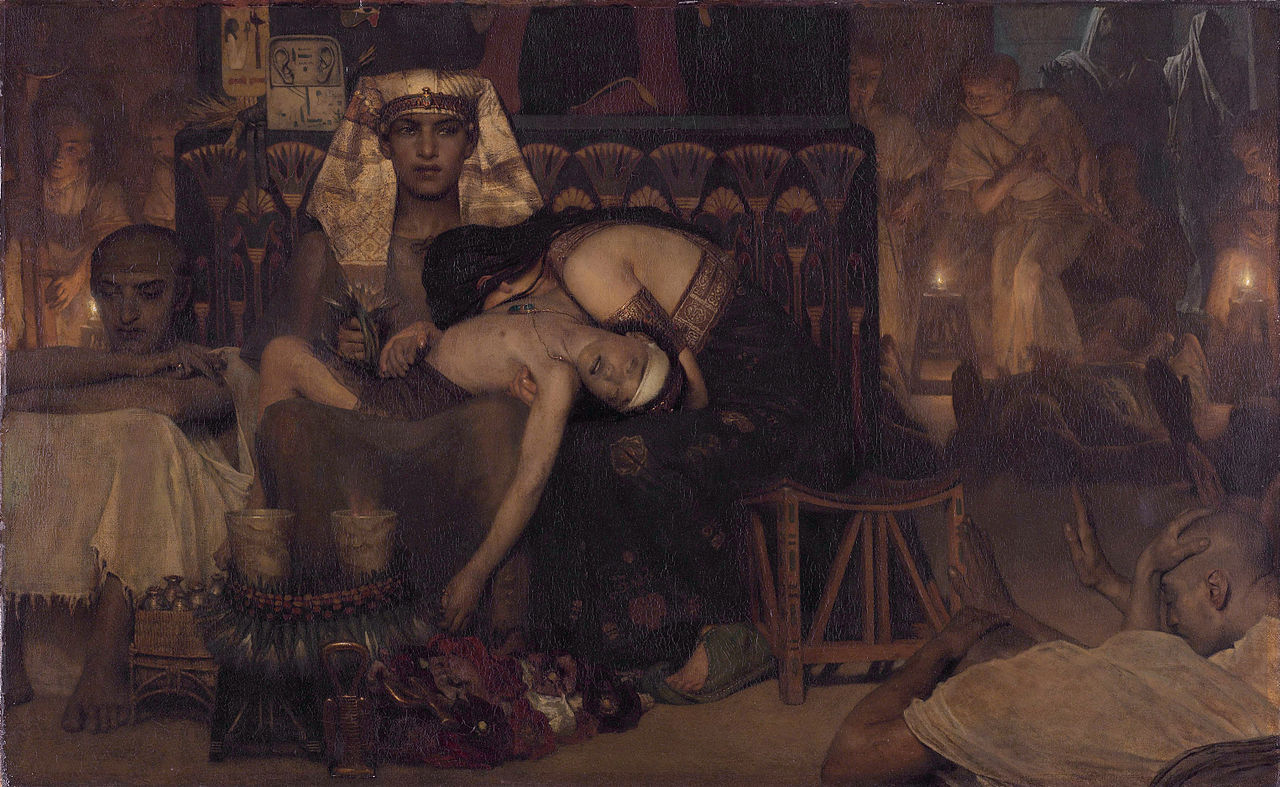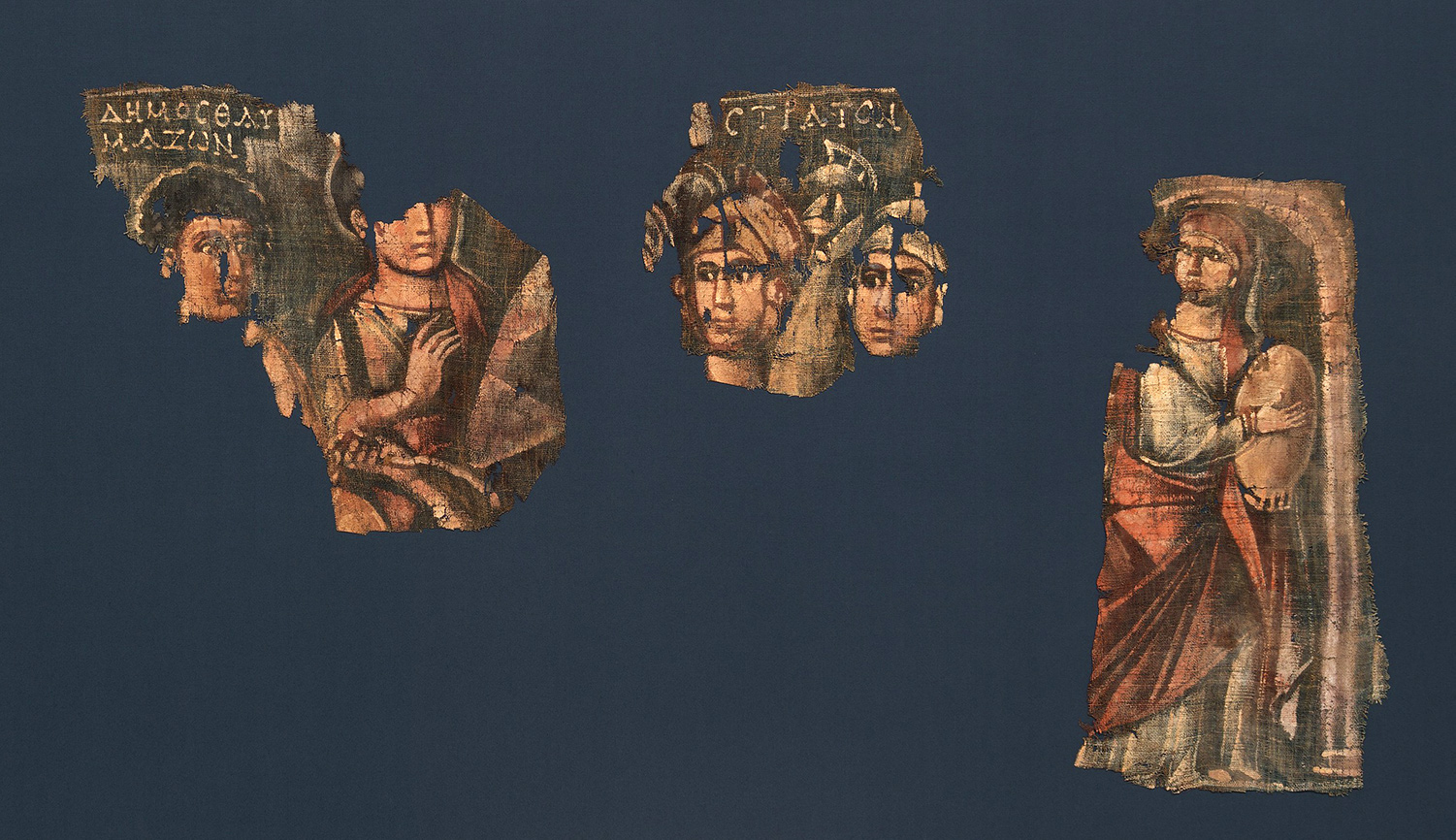In “The People-Forming Passover,” his essay on chapters 12 and 13 of Exodus, Leon Kass subjects the biblical account of the first Passover to a searching examination in order to discover and expound the enduring wisdom underlying the familiar story. As a result, and not surprisingly, he presents us with a number of fine and timely insights, crisply and effectively expressed.
For example: “In framing the actual exodus by these first Israelite laws,” Kass writes, “the Torah clearly hints that the essence of the story lies not in mere (political) liberation from bondage but in liberation for a (more than political) way of life in relation to the Liberator.” In a time in which the political represents the most important dimension that many people—certainly including many biblical scholars—can imagine, it is refreshing to read the words of someone perceptive and courageous enough to point out the deeper meaning of the paschal narrative.
Or, to provide another example, when Kass observes that “The first national laws . . . give [the Israelites] and us a foretaste of what should replace Egypt in their souls. Even while still in Egypt, they are being primed for Sinai,” he rightly glosses his term “Liberator” to note that God is also a Commander: true freedom, in the biblical and classical Jewish vision, is not license or even responsible self-determination but instead entails a life of divine service. And so, when as a result of the exodus, the manumitted slaves can now exercise choice, “What they eventually will be invited to choose, however, will not be ‘freedom’ but something else: righteousness and holiness, gained through willing obedience.” Here, too, the message, as countercultural as it is exegetically correct, flies in the face of the thinking of a broad swath of today’s philosophical, jurisprudential, and, yes, religious thought.
Finally, I cannot resist one last instance of a keen insight of Kass’s, lucidly expressed. “Although God is authoring a political revolution,” he writes, “unlike most revolutions this one will be family-affirming rather than family-denying: the attachment to the community and to the Lord will not require renouncing the love of one’s own flesh and blood.” Here, the contrast with the blood-soaked history of so many revolutions is unmistakable, as is the critique of contemporary cultural currents that minimize or actively seek to undermine the importance of marriage, family, and intergenerational responsibility and continuity.
Some readers of Leon Kass’s essay will conclude, alas, that the Hebrew Bible is as archaic as they always thought it was, not to mention dangerous to human flourishing. Others, it is to be hoped, will reconsider their instinctive positions, including their disregard for that ancient but still relevant book.
All of this underscores why Leon Kass remains, as he has long been, a preeminent moral voice in contemporary culture and a thinker who deserves the attention not only of specialists in the several fields he touches but of ordinary citizens, including those, Jewish or Christian, for whom the Hebrew Bible holds the status of sacred scripture.
II
As Kass sees it, “the seemingly historical stories at the very beginning of the Torah, before the call to Abraham, are also vehicles for conveying the timeless psychic and social roots of human life in all their moral ambiguity,” and the narrative about the exodus carries this focus forward, only now with an eye to “how we relate to the divine, how we relate to the rest of living nature, and how we relate to our mortality and our future—or, in the biblical context, to sacrificing, eating, and procreating.”
The task is a formidable one, however, for the Bible does not for the most part speak in the soaring, abstract terms familiar from philosophical discourse or moral inquiry but rather through narrative, rite, law, and situation-specific preaching. It is also very diverse internally, having been assembled over the course of nearly a millennium from a variety of not always concordant schools of thought and social sectors. The rabbinic tradition, too, tends in the main to eschew the grand generalization or the statement of universal principles in favor of fine-grained textual analysis, very often cast in the form of dialectic. It, too, is thus averse to the unqualified assertion and the neglect of countervailing textual evidence. It is more in the nature of case law than of moral philosophy.
There is, of course, another type of textual interpretation, one more common among Christians reading their Old Testament than among Jews interpreting the Torah or the Tanakh. Here I refer to allegorical readings, which often claim to find in the granular detail of the text allusions to the great and universal truths. Philo of Alexandria, for example, a Jewish philosopher writing in Greek in the first half of the first century CE, was a seminal figure in this movement and one who was to exercise great influence over how Christians interpreted the Old Testament. (He was unknown to the rabbis, so far as we can determine.)
For example, addressing the narrative of the Binding of Isaac (Genesis 22:1-19), to which Kass alludes repeatedly, Philo emphasizes the designated sacrificial victim’s Hebrew name, which Genesis seems to associate with the verb “to laugh” (17:17-19; 18:12-15). “The laughter here understood is not the laughter which amusement arouses in the body, but the good emotion of the understanding, that is joy,” writes Philo. “This the Sage is said to sacrifice as his duty to God, thus showing in a figure that rejoicing is most closely associated with God alone” (On Abraham, 201-202).
The problem besetting such allegorical readings is the impression they leave of arbitrariness, of pushing the text farther in the direction of the author’s philosophy than is warranted. In the case of Philo, it would be grossly unfair to say that his deep immersion in Judaism as it stood in Hellenistic Alexandria did not contribute to his philosophy, but one does have the sense that the connections he draws between the two are forced and often seem to muzzle the voice of the scriptures themselves.
To a large extent, this difficulty is intrinsic to the enterprise of extracting universal philosophical lessons from the very particular and very non-philosophical literature that makes up the Jewish Bible. It is a difficulty that, I believe, is also on display in Kass’s essay. Below, I discuss four examples.
III
The first example is the biblical attitude toward sacrifice.
“[T]he Torah, at least at the start, is not at all keen on sacrificing, which it regards as a problematic human invention,” Kass claims. “The voluntary offerings of Cain and Noah God neither requests nor even seems to want: He rejects the sacrifice of Cain (the inventor of sacrifices), and He makes a most negative comment on the animal sacrifice of Noah.”
Now, any honest interpreter of the Bible is compelled to acknowledge that sacrifice is today difficult to understand; we can sense the uneasiness that Philo already felt with it in his allegorization of the Binding of Isaac, where at the profoundest level it is deep joy rather than his beloved son that Abraham proves willing to offer to God. In the New Testament, which began to take shape toward the end of Philo’s life, one finds Jesus’ death interpreted as an effective sacrifice—but the last effective sacrifice, the one that puts an end to the institution altogether. Philosophers, needless to say, have had their problems with sacrifice as well, and a pronounced skepticism about ritual in general has been prominent in Western culture since the Protestant Reformation and all the more so since the Enlightenment, with its preference for morality over religious rites and its penchant for interpreting the latter as at best ciphers for moral norms.
So Kass is in good company, or at least ample company. But on this he is not, in my judgment, in the company of the Hebrew Bible.
For one thing, it is not so clear that Cain is “the inventor of sacrifice.” The cryptic text of Genesis 4:3-5 does not preclude the notion that the two brothers brought their sacrifices together, and, in any event, the narrative treats sacrifice as a known institution and hardly one that someone “invented.” It is true that God rejected Cain’s sacrifice, but the Torah tells us this only after reporting that God accepted Abel’s. And did He reject Cain’s because, as Kass seems to think, He is leery of sacrifice or, quite to the contrary, because Cain was too stinting in his offering—“the fruit of the soil” in contradistinction to Abel’s “choicest of the firstlings of his flock” (4:3-4)? (All translations are from the Jewish Publication Society Tanakh.)
Nor am I persuaded that God “makes a most negative comment on the animal sacrifice of Noah” in Genesis 8:20-22. Rather, the most natural reading is that Noah’s “burnt offering on the altar” is exactly what induced God to replace His righteous anger, the immediate cause of the Flood, with benevolence. “The LORD smelled the pleasing odor, and the LORD said to Himself: “Never again will I doom the earth because of man. . . . ” A close parallel to this can be found in Numbers 17:8-15, where it is the high priest Aaron who stems the deadly pandemic by making an aromatic sacrificial offering. “He put on the incense and made expiation for the people; he stood between the dead and the living until the plague was checked” (17:12-13).
That the blood of the paschal lamb in Exodus 12 was thought to do something similar, converting God’s lethal fury to life-saving favor when smeared on the doorposts and lintels of the Israelites, should not be discounted. It does this not because it is somehow magic but because sacrifice properly offered is something the God of Israel treasures. Kass’s claim that “the exercise is for the Israelites, not for Him,” fails to reckon with these dynamics. Although the paschal sacrifice serves a pedagogical function and demonstrates the obedience of the Israelites, it is not merely an educational exercise or an expression of spirituality. Rather, it takes its meaning from the two-sided relationship of the God of Israel and the people of Israel whom He has pledged to rescue.
The larger context is that a major part of the Torah—everything from the last third or so of Exodus through most of Leviticus and parts of Numbers and Deuteronomy—focuses precisely on sacrifice, which is presented in God’s own voice and as central to His service. It is true that the collections of prophetic oracles in the Bible sometimes denounce those who engage in sacrificial rites to the exclusion of practicing ethical norms, but those same books often include visions of restoration in which the reconstructed Temple and the renewed sacrificial liturgy (along with a regenerate people Israel) are prominent. As for rabbinic literature, it is massively concerned with the sacrifices and with the details of how they are to be offered, and the restoration of the Temple and its sacrificial rites is central to the rabbis’ eschatology and their liturgy. Indeed, it retains its prominent place in Orthodox prayer books to this day.
None of this is to say that Leon Kass ought to have a more positive view of sacrifice. It is only to say that the Hebrew Bible and Jewish tradition do.
The second example concerns the Binding of Isaac.
Given his lack of sympathy with sacrifice, it is not surprising that Kass believes that the point of Genesis 22:1-19 is “only to teach Abraham that He does not really want child sacrifice but only the father’s dedicated awe and fear of God.” Now, this interpretation has become common in modern times, though it is quite the opposite of the one that historically predominated in the Jewish, Christian, and Muslim traditions. And for good reason.
For, if God wants to teach Abraham that He does not want child sacrifice, He does so in a passing strange way. To begin with, He commands exactly what He supposedly doesn’t want. As if that is not enough, He calls off the sacrifice of Isaac precisely because Abraham has now passed the test by having proven willing to do it, and God rewards that willingness richly, now transforming it into the very foundation of the promises that Abraham had received (22:12, 15-18). (Later, in the Second Temple period, the Binding of Isaac will be seen as the origin of Passover as well, with the ram that substitutes for Isaac as the first paschal lamb. Still later, in rabbinic Judaism, Abraham’s exemplary act of obedience will be understood to have generated a store of merit upon which afflicted Jewish communities can, by God’s grace, draw to make up for their own behavioral deficiencies.) Finally, the text says nothing at all about any prohibition of future fathers’ offering their sons.
Such prohibitions do occur, of course, in the Torah, and some prophets thunder against child sacrifice as emblematic of the worst idolatry. But let’s assume that those prophets know the story of the Binding of Isaac (a big assumption, to be sure) and that they think, as Kass does, that its point is that God “does not really want child sacrifice.” Is it then not curious that they never marshal Father Abraham and what is probably the most memorable scriptural story about him in their uncompromising polemic against the deviant practice? Why do they fail to utilize one of the most powerful weapons in their rhetorical arsenal?
Over the years, I have been at pains in a number of publications (most recently, in Inheriting Abraham, chapter 3) to argue that the Binding of Isaac is not about child sacrifice at all. It is intended neither to commend the practice nor to condemn it. Kass’s view that it is about “the father’s dedicated awe and fear of God” is closer to the mark, except that the narrative sees this awe and fear as most exquisitely manifested in an act that is sacrificial and not merely in an attitude, a belief, or an ethical practice. The awe and fear of God can require giving up what is dearest, that on which one’s own life and future have been staked, and, in short, putting God’s will above one’s own self-interest. With that as the message (admittedly stated much too briefly here), we should not be surprised that three religions that strictly forbid child sacrifice have so long and so passionately venerated Abraham’s willingness to offer Isaac back to the God who gave him.
The third example of Kass’s misunderstanding the biblical evidence concerns the status of the firstborn son. Here is what he writes:
The law regarding redemption of the firstborn in Israel has a distinctly political target: the practice, especially in settled agricultural societies like Egypt, of primogeniture, in which the naturally first is automatically the heir of his father’s domain. The Bible has from the beginning silently inveighed against the father’s preference for his firstborn—favoring Abel over Cain, Isaac over Ishmael, Jacob over Esau, Ephraim over Manasseh, Moses over Aaron—and making it clear that the naturally first is not the humanly best, especially if the standard is not might but right, especially if human affairs are not yet “set” according to God’s plan.
Some of these cases are stronger than others. Is Ishmael, born of an Egyptian slave who served as a surrogate mother to her mistress, really Abraham’s “firstborn”? The Bible never uses that term of him. And is it so clear that the Bible favors Moses over Aaron? It is the latter (and older) brother from whom the continuing priestly dynasty (the kohanim) derives and who thus serves as the archetype of the high priest for all time, whereas the former’s progeny soon disappear from the record. But Kass is surely right that a number of biblical narratives take evident delight in the younger brother’s supplanting of the elder. In my judgment, this probably has to do, humanly speaking, with ancient Israel’s perception of itself as a small and late-born group struggling to survive amidst huge civilizations of venerable antiquity.
Even so, it is at best incomplete to speak simply of the Bible as having “silently inveighed against the father’s preference for the firstborn.” Deuteronomic law, for example, requires the father to recognize the claims of the firstborn, however much he may prefer a younger brother and the mother who bore him, and to bequeath to the firstborn “a double portion of all he possesses.” The reason given is striking: “since he is the first fruit of his vigor, the birthright is his due” (Deuteronomy 21:15-17).
Closer to Kass’s subject are the first words that God instructs Moses to say to Pharaoh: “Thus says the LORD: Israel is My firstborn son. I have said to you, ‘Let My son go, that he may worship Me,’ yet you refuse to let him go. Now I will slay your firstborn son” (Exodus 4:22-23). Here, Israel’s own status is that of the ultimate firstborn, God’s own, and the death of the firstborn of Egypt (or at least the firstborn of its ruler) is not a renunciation of primogeniture: it is an assertion of it.
I also think of words in a psalm in which God adopts David, and by extension his royal successors, as his son or, actually, more than just a son: “I will appoint him firstborn,/ highest of the kings of the earth” (Psalms 89:28). This does not bespeak a culture that disparages primogeniture and hopes a younger son will supplant the firstborn.
Kass is correct that the general biblical teaching is “that children are a gift, not of nature but of the Lord,” and he is correct to stress it in the context of the death of the firstborn of Egypt. I am not persuaded, however, by his connecting this, in a manner reminiscent of allegory, to the imagined biblical polemic against primogeniture, or to primogeniture itself. As I see it, both the consecration of the firstborn son and primogeniture are parts of the same conceptual complex.
The fourth example is the eligibility of the ger, a term that Kass renders as “stranger,” to partake of the Passover meal:
Participation in the sacrifice is to be restricted to Israelites, those within the Abrahamic covenant, including those who are willing to join the community (with their families) by being circumcised. Foreigners are not eligible to eat of the sacrifice. . . . If a stranger sojourns with you and wants to keep the Passover, he may participate after all the males of his household are circumcised. After that, the sojourner shall be as a native of the land, but not until then: no uncircumcised person shall eat of it.
For Kass, these laws underscore the important point of just how “how generous are the criteria for allowing outsiders to join [the Israelites’] ranks.” For “one need not be a natural child of Israel to become a covenantal child in Israel. What is required is only male circumcision, the voluntary acceptance of the (nature-altering) sign of God’s covenant with Abraham and all of his future descendants.”
There is a serious problem, however, with Kass’s use of the term, “outsider.” As he notes, the “foreigner” (ben-neykhar) is not eligible to eat of the paschal offering (Exodus 12:43). So it is really only a subsection of “outsiders” who may legitimately do so, namely, the “stranger” (ger). But what exactly in the Hebrew Bible is a ger?
With all due qualifications owing to variations over time and schools of thought, it would seem that the ger in the Bible was someone—almost always, as in Exodus 12, a non-Israelite—who was detached from the traditional patrimonial land claims of his extended kin group. As a result, he had probably become a worker dependent on an Israelite household and thus dangerously vulnerable to victimization. Though he may be of foreign origin, he is part of the Israelite community, bound by its laws and even participating to one degree or another in its rites, such as the Day of Atonement, in which the ger is explicitly included—though, significantly without any mention of circumcision (Leviticus 16:29).
That the ger is eligible for participation in ritual activities hardly makes him “a covenantal child in Israel.” Here, Kass extrapolates too quickly from Genesis 17, the only place in the Bible in which circumcision is presented as “the sign of the covenant” (17:11). But even there, circumcision does not make a man or boy into “a covenantal child in Israel.” Note that in the same chapter Abraham also circumcises all of his slaves and his emphatically non-Israelite son Ishmael, as God instructs (17:23-27).
The point is that all male members of an Israelite household must be circumcised. In the case of the Passover sacrifice as it is presented in Exodus 12, the ensuing meal is itself very much a household event. Outsiders (such as the “foreigner”) are not eligible to participate. Partial insiders, such as the ger, can be made eligible on the same terms as the Israelites themselves. But by becoming circumcised, the ger cannot be said to “join their ranks.”
Eventually, though, efforts were made to mitigate the liminal status of the ger. In the vision of a restored Israel in the book of Ezekiel, for example, the gerim are to receive land allotments within the tribal territories in which they dwell (Ezekiel 47:21-23). Even then, however, we cannot assume that they cease thereby to constitute a distinct group. Centuries later, in rabbinic literature, the term ger has been repurposed to denote a convert and thus one who, if male, becomes a full member of the people Israel through a process to which circumcision is central.
When Kass speaks of circumcision in the context of the paschal banquet as making one “a covenantal child of Israel” and enabling the ger to “join their ranks,” he is reading rabbinic terminology and a post-biblical institution back into the Torah. Within the biblical context, to treat circumcision in the case of the paschal meal as a cipher for conversion comes once again perilously close to allegory.
IV
Writing early on in his Mosaic essay of “the way of life that the Lord has in store for humankind,” Leon Kass observes that “human life will be rationally ordered, but the order will not be man-made; it will not be willful, but reasonable.”
This, of course, raises the weighty and thorny issue of the standards by which we are to ascertain what is reasonable and what is not. To many in contemporary Western societies, Kass’s claim that liberation must be more than political, his emphasis on “willing obedience,” his affirmation of the importance of family, and his avowal that there is something or Someone higher than nature will seem unreasonable in the extreme. If understood to reflect the thinking of the Hebrew Bible (as indeed they do), these positions are, as I mentioned at the outset, likely to confirm some readers of his provocative essay in their low regard for those scriptures.
In Kass’s understanding of “the way of life that the Lord has in store for humankind,” however, people should also be skeptical and leery of sacrifice, think the message of the wrenching narrative of the Binding of Isaac is that one should not kill one’s child, regard primogeniture as dangerous and against God’s wishes, and believe that the criteria for making outsiders into fully enfranchised insiders should be simple and readily available. Those positions are likely to be much more popular, and, if they reflect the Hebrew Bible, they should raise many readers’ estimation of that set of books considerably.
In my judgment, alas, they do not reflect the thinking of the Hebrew Bible but rather Leon Kass’s own sense of what is reasonable. A more thorough and fine-grained analysis of the subtle and diverse set of books that make up the Jewish scriptural canon might yield a more capacious understanding of reason and, as a result, a more robust appreciation of the Hebrew Bible in all of its stubborn particularity.
More about: Exodus, Hebrew Bible, Passover, Religion & Holidays
